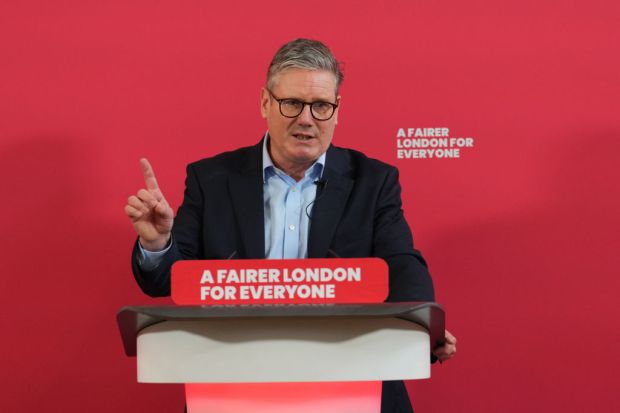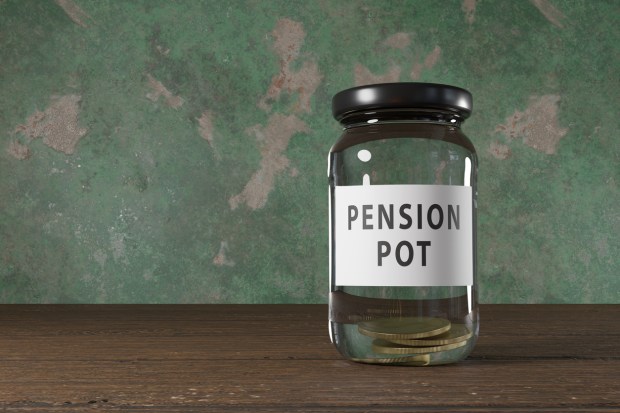This is an article about the power of language in the transgender debate, about how the trans agenda has been advanced by the skilful capture of language, and about a government minister who has rejected that capture in favour of facts.
It’s a bit complicated, so bear with me while I try to explain a slightly technical legal thing. It’s also based on a debate that happened in Parliament last week, but which I’ve only just had time to read in full. Sorry.
Anyway, this is about what happens when a person who is married changes their gender in law. Let’s say that person – Alex – was born male, grew to manhood and married a woman, Sue. Let’s say that in his 50s, Alex took steps to change his legal gender to be recognised as a woman.
What happens to the marriage between those two people? Well, all else being equal, that marriage would continue and Sue would now find herself married to someone who was, in law, female. The marriage that was contracted between a man and a woman would now be between two legal females.
Is that okay? Should it be possible for Alex to change the nature of that marriage without Sue, an equal party to that marriage, getting a say? Parliament didn’t think so. In 2013, it passed Schedule 5 of the Marriage (Same Sex Couples Act 2013), which amends the Gender Recognition Act 2004, the legislation that provides for Alex to change gender in law. The effect of that amendment is that in order for the marriage between Sue and Alex to continue and become, in effect, a same-sex marriage, Sue has to say that she’s okay with that.
Note the date on that legislation. This was passed by the Coalition government, not often accused of illiberalism. The same 2013 Act, after all, provides for same-sex marriage, though importantly, it does so as a separate legal construct; gay marriage and heterosexual marriage are, in law, different institutions.
Now, on the basis of the account I’ve just given, you might be thinking ‘Well, that’s boring. What’s the big deal? And when is he going to do the thing where he says the word “penis” a lot?’ But not everyone thinks this is boring. To some people, the law I’ve just described is a cruel and unjustified assault on the rights of a persecuted minority, namely transgender people.
In the language of trans rights advocates, Schedule 5 creates a ‘spousal veto’ on a trans person’s ability to change gender and be recognised as their true self. Abolishing the ‘veto’ has become a significant aim of trans equality campaigners and lobbyists. Stonewall has been campaigning on the point for several years, and last year, the Liberal Democrats adopted the same position; Liz Barker, a Lib Dem peer, attempted to use a private members’ bill to bring about the change.
All of this, finally, brings us to the House of Lords last week, where peers were debating the law on divorce, namely the Divorce, Dissolution and Separation Bill, which is intended to provide for no-fault divorce.
In the second reading debate on the bill, some peers raised the issue of the ‘spousal veto’.
Here’s Baroness Burt, a Lib Dem:
‘I understand that the Government are adamant that the spousal veto is without the scope of the Bill, but I am sure the Minister is aware of the strength of feeling and sense of injustice felt by trans people—indeed, by anyone who supports their rights—not to be discriminated against in this way.’
And here’s Baroness Hunt, a former head of Stonewall, in her first speech in the Lords:
‘So if Laura is married to Michael—they have an opposite-sex marriage—and Laura changes and becomes Simon, Michael has to agree that their opposite-sex marriage can become a same-sex marriage. If Michael refuses, Simon cannot receive a gender recognition certificate. [My bold].
‘Of course, Simon and Michael may not want to stay married. It currently takes two years to receive a gender recognition certificate, and the introduction of no-fault divorce will make it easier for them to separate before Simon applies for his new certificate. If Michael does not want a divorce, however, he currently has the power to stop his spouse transitioning. This does not seem fair or right, and his right of veto exists because marriage for same-sex couples is a different institution from marriage for opposite-sex couples.’
(Hunt also argued that the two classes of marriage should become one, so that there was no legal difference between a same-sex marriage and a different-sex marriage. I agree.)
The debate ended with a summing up speech by Lord Keen of Elie, the advocate general for Scotland and a justice minister. Before becoming a minister, Keen was a working QC at the English and Scottish bars. In other words, he’s a senior and serious lawyer.
And this is what he had to say on the ‘spousal veto’: there is no such thing.
Here’s the relevant bit of his speech:
‘The noble Baroness, Lady Burt of Solihull, raised the question of transgender people, or persons who wish to transition, which she acknowledged was outwith the scope of the Bill—which it certainly is. However, if and when we come to address that, I think that we would have carefully to approach her use of the unqualified term “veto” in respect of this matter.
‘The noble Baroness, Lady Hunt, very charmingly used a “Jack and Jill” kind of illustration of certain matters; perhaps I may seek to deploy a similar approach. Mary marries Paul; Paul decides that he will transition to become Pauline. To complete that process, he will either require the consent of Mary or he will have to secure a declarator of nullity of marriage—so there is no actual veto. [My bold] The point of the present situation is this: Mary who married Paul should not find herself married to Pauline without her consent.’
And that, I think, is significant and worth noting here. One of the interesting characteristics of the transgender debate is how trans advocates have used language with care and deliberation and repetition to create an orthodoxy that few people in public life will analyse let alone question. Hence the phrase ‘transwomen are women’, a proposition that raises some big philosophical and legal questions but ones that are barely even acknowledged; anyone in politics who does not say those words is at risk of being accused of transphobic bigotry. And so an important issue goes without proper scrutiny or debate.
The ‘spousal veto’ is another example, or at least, an attempt to create another bit of the orthodoxy, and one that, for instance, the Lib Dems have signed up to in full (even though they were part of the Government that passed the relevant legislation).
And so the fact that Keen, a serving government minister, has – on the basis of fact and knowledge – very politely rejected that attempt to capture language and use it to misrepresent reality is, I think, quite important. Other ministers, especially the admirable Victoria Atkins, have attempted to bring a bit of balance to the trans debate, pointing out that some women have concerns about gender-change laws that should be listened to. But for several years, much of government – and the civil service especially – has uncritically accepted the language and narrative of trans advocates.
I’m not aware of any minister previously being willing to challenge, openly, the worldview promoted by trans rights advocates in the way that Lord Keen did in the Lords last week.
Equally important was the way Keen rejected that worldview. He didn’t plunge into combat, didn’t seek to fight or score points in some online culture skirmish. (I suspect he’d be surprised to find his words being reported here, in fact.) Instead, he simply pointed out that the reality of the situation was more complicated than the activists’ language suggests. In Keen’s words:
‘There are counter-arguments and it is a delicate and difficult issue… I simply underline that it is a delicate subject that will have to be approached with care and without using such unqualified terms as “veto”.’
Quite so. This part of the trans issue, like so many others, is complicated. Let’s discuss it on the basis of complex fact, not simple slogans. Amen to that, my lord.
Got something to add? Join the discussion and comment below.
Get 10 issues for just $10
Subscribe to The Spectator Australia today for the next 10 magazine issues, plus full online access, for just $10.




















Comments
Don't miss out
Join the conversation with other Spectator Australia readers. Subscribe to leave a comment.
SUBSCRIBEAlready a subscriber? Log in